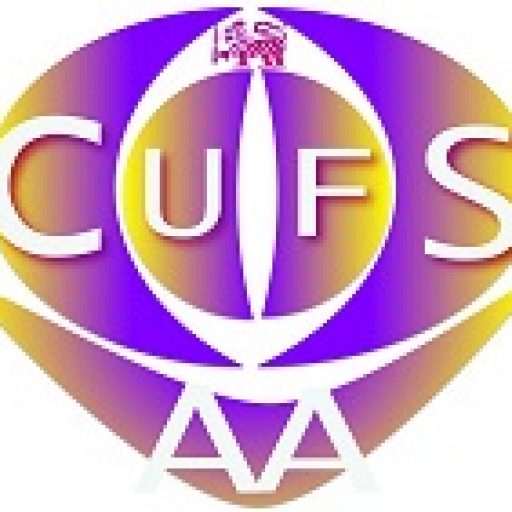Dear Sri Lankan Teaching Assistant
Congratulations! For decades many alumni from the Faculty of Science, who first started as somewhat anxious teaching assistants, have blazed the trail and have become excellent professors loved by students and colleagues alike. Quite a few have gone on to receive many statewide teaching recognition. We at CUFSAA thought of sharing some tips for you to help you in your classroom experience.
1. Try to know the names of all the students in your section within the first three weeks and get to know their abilities and passions individually. One of the ways you can do that is by visiting students during a classroom activity. North American students appreciate the effort to help them individually.
2. Appreciate the cultural differences and to be aware of the sensitivities about privacy and respect for personal freedom. For example, do not to expect the same type of respect for teachers as observed in Sri Lanka and do not to make adverse comments on their intellectual ability, as well as not to compare them with the students back home etc. US students too will respect you, but you will need to earn it from them through your teaching and your desire to see students learn.
3. Put all your procedures for grades, ground rules, makeup exams, etc. in the syllabus and stick to them. Please tell students clearly of your policies about cellphone usage and coming late to class.
4. There are plenty of easy to read small books which can help you become a good teacher as well as help your students reach students reach their full potential. One such is. “What the Best College Teachers Do by Ken Bain (There is a similar book for students by the same author too ).
Please read these books. Sometimes your school might have reading circles for professors. Please consider joining them. Some other modern Teaching and Learning research areas include “Growth Mindset” and “Self-Regulated Learning.” You can find sample books here and here.
5. Do attend Teaching learning workshops offered by the University.
6. Make sure you give in class activities for students. These activities are where most of the learning occurs. Use these to visit your students and make sure to visit and communicate with your students in the back rows of the class.
7. Sometimes, Professors in your department dealing with education may conduct studies on teaching and learning and may look for participating sections. Consider joining these research groups. These experiences will be invaluable when you are teaching as well as looking for jobs later.
8. Do not be afraid to ask a professor or a colleague to sit in your class and give an evaluation of your teaching. Feedback from such sessions will help to enhance your teaching. Such reports are usually missing from the application packets of job hunters and will make your job application stand out.
9. Keep your classes student centered. Encourage your students to ask questions. Be careful not to allow students feel humiliated when they give incorrect answers (You can talk about positive aspects of an incorrect answer, such as attempt and strategy). Read tips on classroom communication methods.
10. There are plenty of online resources with tips to new graduate assistants. Please take time to read them. Here are some of these:
https://cft.vanderbilt.edu/guides-sub-pages/ta-resources/
https://www.unl.edu/gradstudies/current/news/advice-your-first-year-teaching-assistant
https://www.quizalize.com/blog/2017/07/14/top-ten-tips-effective-teaching-assistant/
11. Before you make jokes or statements outside your subject matter, please be careful to ensure that they will not affect any racial, gender or political sensitivities of your students.
12. Think carefully before friending your students on Facebook. There are plenty of articles on the subject such as https://www.psychologytoday.com/us/blog/positively-media/201106/should-teachers-and-students-be-facebook-friends .
13. For specific topics in your disciplines where students typically struggle with (such as “Related Rates” in Calculus), there is plenty of education research done where they recommend simple strategies and these articles are very easy to read. Go to Google Scholar to find such articles or ask one of your librarians to help you find a good set of articles.
14. For large sections, try to give each student a voice by using collaborative platforms such as https://www.polleverywhere.com/ or https://www.socrative.com/ . However before you use any instructional technology (including flipped classrooms), make sure you read about the “Best Practices” for each technology as the success of most instructional technologies are highly dependent on these practices.
15. Keep scanned copies of all the “Thank You” cards your students give as well as your evaluations.
16. Show genuine interest in helping the students with their experiments. Don’t just be a monitor, help them make their lab a true learning experience.
17. Most North American universities consider lab safety as a top priority. Ensure that your students adhere to strict safety regulations. Remember, any safety incident will be your responsibility and will have an impact on your future career.
18. Ask us at CUFSAA for help if you have any questions or situations you need help with. We have plenty of expert professors in our membership who will be glad to help you (info@cufsaa.org ). We will keep your questions anonymous.
Published by CUFSAA as a service to students arriving from Sri Lanka to pursue graduate studies with a Teaching Assistantships.
